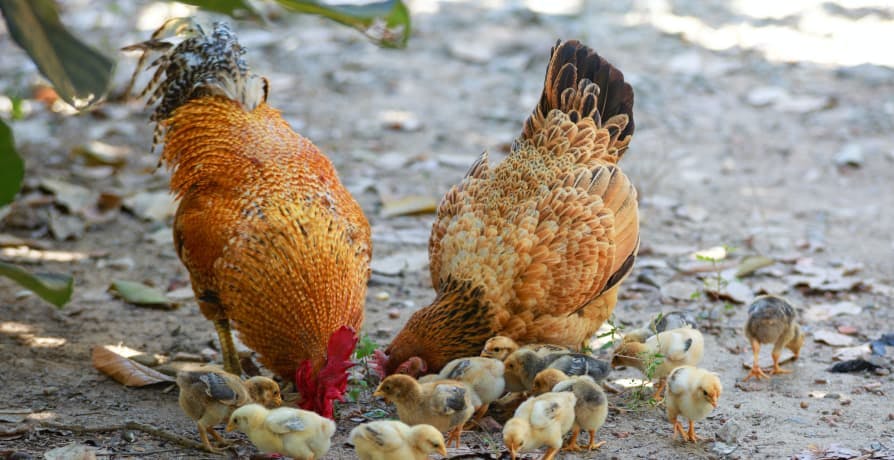ESG / CSR
Industries
Veganism: Principles, Issues and Tips to Make it Sustainable



Veganism used to get a bad reputation, but in today’s world – you’re just another face in the crowd if you’re sitting at dinner with your friends and mention you’re vegan. Okay, well maybe you’re not that much of a common case given there are only 1.62 million vegans in the U.S. – but you most certainly won’t be looked at as a unicorn.
In 2023, almost everyone is familiar with the concept of veganism – but there are still many misconceptions to this day about why people go vegan in the first place and the ultimate goals of veganism.
As someone who has been vegan for over six years (yes, before it was hip-and-trendy and everyone else around me believed in the power of oat milk) – I’ve gotten to learn all of the ins and outs of veganism, and that just because you’re vegan doesn’t mean you’re automatically saving the world or becoming a better, healthier person.
In fact, veganism is defined in a multitude of ways – with some subscribing to the vegan label in regards to how they eat and some in regards to how they decide to style their outfits in regards to which clothes, shoes, or bags they buy.
Ultimately, the question remains: what is veganism, what principles are veganism based on, what are the potential issues of being vegan, and how could people utilise veganism to both their individual and global benefit in terms of sustainability?
What is veganism?
👉 Veganism is a term that is used differently depending on who you are speaking to, as some will think of veganism as strictly referring to their food choices and others as an entire lifestyle approach.
People turn to veganism for a wide variety of reasons, but some of the most important ones include seeking to improve their health, reduce their environmental impact, and show their support for animals’ lives.

Why do people look to veganism?
People turn to veganism for a wide variety of reasons, and in the beginning (i.e. before the day’s when Ben & Jerry’s was releasing vegan ice cream flavors or that you could buy vegan fish filets at Whole Foods) – many people opted to become vegan for health reasons. This is because a vegan diet, when done by eating whole and natural foods, is considered to be one of the “cleanest” ways of eating – seeing as there is next to no cholesterol in food choices like tofu, fruits, and vegetables.
👉 Besides diet choices or to improve their own health, other reasons why people people turn to veganism is to improve their sustainability or reduce their carbon footprint. This is because even if you are a “junk food” vegan – it is easy to presume that being vegan automatically helps to reduce emissions and water consumption.
Many people also turn to veganism for moral values in regards to eating meat or by products of animals to promote animal welfare and prevent animal cruelty. In other words, many people do not want to support the way animals are treated in the process of food production, even if they aren’t killed – and veganism serves as a way to show that support.
However, as of more recently, people have shifted to veganism because of its rise in popularity and accessibility, especially for those living in the U.S – seeing as there is a vegan replacement for almost everything at regular grocery stores.
Many people become vegan for one thing, but they stay vegan for another. For instance, I myself began to transition towards veganism due to my difficulties in digesting food and after having tried many different diets such as gluten-free and paleo to no avail. I had always loved cooking and baking, and stumbled across YouTube videos of people baking vegan. I was intrigued how they could bake without the use of dairy or eggs – almost like a computer programmer enticed by a new way of coding that yields the same results with a different formula. My veganism journey started for health reasons and creativity, but I have remained vegan all of these years following my discoveries on how beneficial veganism is for the planet, animals, and my overall well-being and longevity.

What are the benefits of veganism?
There are multiple long-term benefits to be had for those who commit to veganism. For instance, one of the biggest benefits of veganism is that it is much easier for the human body to digest food – seeing as our bodies are not made to digest cow’s milk. This is because the proteins in cow milk, such as casein, are a demanding ingredient for your body to digest – and less stress on your digestive system to intake these proteins can lead to better digestion and overall health. In addition to this, the increased intake of wholesome, unprocessed, and nutritious, reduces chances of many diseases. Veganims also means one’s diet is likely to consist more of naturally occurring fats, oils, and sugars that aren’t found in animal byproducts – and these natural ingredients can help to prevent obesity. In other words, the fat from animal products is always inherently higher – so even if a vegan eats more food in size, the caloric density isn’t as high as food from an animal product.
In addition to this, the benefits of veganism don’t just stop at the individual’s health – but veganism can be good for the planet as well. This is because much of the food industry creates emissions from animal products, such as livestock raising or retrieving eggs from chicken. Ultimately, it takes less water to produce products like soy than meat – meaning veganism can help to reduce water usage.
In addition to this, veganism can help to prevent animal suffering – many of which are unaware is consistently occurring throughout the industry. While they are free-range chickens that produce eggs, they are still terrifying practices in the agricultural industry – such as genetically mutating female chickens to lay 300 eggs a year, where they are only meant to lay 12 to 20 annually. Even more horrifying, male chicks are usually killed within hours of being hatched as they are seen as “worthless” to the food industry. Baby cows are often separated from their mothers when being raised for livestock. Humans aren’t viewed as machines, but chickens and cows are viewed as egg and milk machines respectively to most who practice veganism – and veganism can help in support against that concept.

Has veganism grown in popularity in recent years?
Across the world and in the U.S., it isn’t improbable to go to a non-vegan restaurant or cafe and be perfectly satisfied with the food options available. In fact, almost 80 million people around the world are vegan, and while that may seem insignificant in comparison to the near 8 billion people who roam the planet – it’s a lot. To put it into perspective, there are more vegans on the planet than there are people who live in France.
In fact, many celebrities have been open with their vegan journeys: such as Miley Cyrus and Ariana Grande, in addition to many popular stars being open about their veganism. As a result of rising interest and awareness of veganism, almost all coffee shops across the U.S. offer plant-based milk alternatives at their cafes, with many restaurants offering vegan options as well due to the increased interest in veganism.
Popular ice-cream brands like Ben & Jerry’s have released vegan flavors of ice cream, meat substitutes, and even fake fish have been released to help people aid in their transition to veganism – but is this the more sustainable option for veganism?

Why could veganism be unsustainable?
If veganism is done with a whole-food, natural approach – veganism can indeed be a very sustainable way of living. However, veganism isn’t what it used to be a decade ago: meaning that people can easily opt for replacements for all of their favorite meals to “veganise” them – and while this may be comforting and make going vegan seem more doable, it isn’t the most sustainable approach to veganism.
This is because fake cream cheeses, yogurts, meats, fish, chicken, and cheese substitutes might go through heavy processing to be made – unlike naturally occurring vegan protein sources such as nuts, tofu, and beans. In addition to this, vegans are likely to consume more fruits and vegetables, and while this is good for the body – it might not be so good for the environment. Fruits and vegetables such as avocados, mushrooms, and cocoa have a heavy environmental impact – all of which are likely to be a part of someone’s vegan diet.

How can you make veganism sustainable?
Luckily, veganism can still result in sustainability – but someone has to be committed to the right type of diet in order for veganism to yield a true sustainable purpose. For instance, vegans will have to limit themselves to dairy-free ice creams, fake meats, and fake cheeses as a “treat” – and stick to eating whole foods as much as possible: such as beans, greens, grains, tofu, and oats. This is because eating processed foods is one of the quickest ways to make veganism an unsustainable practice.
Veganism can be more sustainable if people who choose veganism opt to practice for sustainable eating and consumption habits throughout: such as by purchasing reusable containers, reusable water bottles, and reducing their plastic consumption and water waste when cooking. For instance, seeing as vegetables emit a large amount of water when cooking anyways, there is no need for vegans (or anyone, for that matter) to use additional oil when cooking vegetables – as the will emit water when cooking and prevent the pan from burning.
Lastly, your reason for being vegan has to be sustainable itself. For instance, someone who hates cooking isn’t going to fare well in the world of veganism – as much of veganism thrives on the interest and creativity of recreating beloved meals without the use of animal byproducts. Therefore, veganism can only really be sustainable if the person pursuing veganism is intrinsically motivated for some reason in specific: whether it be for their own health, to protect the planets, or general animal well-being.
At the end of the day, veganism doesn’t mean sustainable – but veganism can serve as a means for someone to become more sustainable if they use veganism to its sustainable advantage.
What about Greenly?
If reading this article about veganism has made you interested in reducing your carbon emissions to further fight against climate change – Greenly can help you!
Going vegan is just one of the many ways that you can go green and help fight against climate change, and Greenly can help you discover all of the other personalised habits you can easily create to help the global movement – book a demo here to learn more.
Greenly can help you make an environmental change for the better, starting with a carbon footprint assessment to know how much carbon emissions your company produces.


